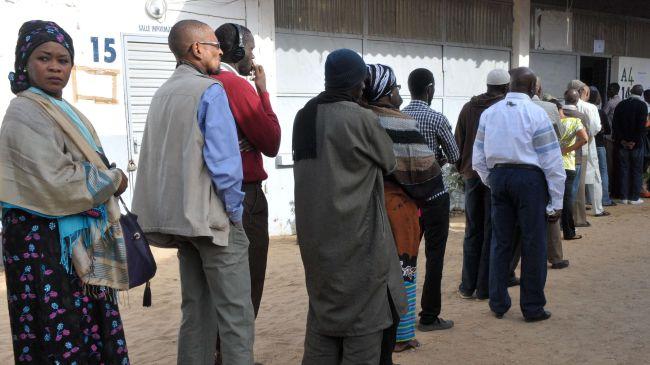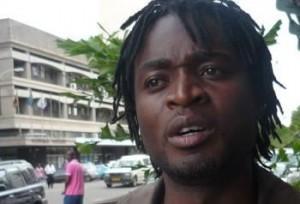The Arab Spring – Senegalese Echoes? – By Jeggan C. Senghor

In an earlier reflection, I examined the domino-effects of the Arab Spring on Sub-Saharan African countries and the conditions that should exist if effective and radical change is to ensue (New Africa Analysis, 4 March 2011). Since then, there have been light winds here and there in some countries below the Sahara but no major tsunami. Excepting, somewhat, in Senegal. But, even here, the existing conditions have dictated that the form and content of the “˜revolution’ are different from what transpired in North Africa. From this, the argument in this piece suggests that the combination of factors and forces in the Senegalese case that have led to demonstrations and protests are also at play in preventing an explosion into a full-blown “˜revolution’, as in some of the Arab states.
Senegal has often been presented as a model for the rest of Africa, particularly as regards its politics. Most, if not all, of the elements of an open society are present in the political system and how it functions. The institutions of governance, patterned on those of France and the United States, operate, to a great extent, as they are meant to, and the boundaries between state and society are well-defined. Perhaps no fact summarizes this state of affairs better than the simple observation that Senegal is the one country in mainland West Africa that has not experienced a military coup d’état. In general, the implicit or explicit message of any coup is that all has not been well with the old order, that there have been problems serious enough to warrant intervention by the military. Underlying any attempt at a coup are a vast range of problems that the particular country has been experiencing which may be systemic in nature and, more often than not, grounded in issues of leadership. In short, hiding behind a coup are many aberrations in the state, if not in society at large. The grievances announced by the leaders of the demonstrations in Senegal have as yet not progressed so far; they remain context-bound.
Why then this Senegalese exceptionalism? For a start, a solid bedrock of democratic values has been built over the last 50 years of independence, which can contain any attempts at societal breakdown and system collapse. Apparently, at the foundation is a sociological phenomenon which, at its simplest, make the Senegalese different – that is, from an early age they are taught to think critically, to articulate their views no matter how different, and to defend their convictions, no matter the likely consequences. This becomes part of the individual and, by extension, the national psyche.
Second, a theoretical case can be made that the founding leadership of a country – especially if it lasts for decades – moulds the character of the nation and the dominant culture of the elite class. As a pure-bred intellectual, and in line with his personal character, President Senghor, the Head of State for the first 20 years of nationhood, encouraged dialogue, debate and constructive criticism; this not only on intellectual but also on political issues (though the tolerance level was more limited as regards this last). After giving his people long notice, he resigned and declared his deep regrets that he had spent so long in politics when he could have been better engaged in creative writing, especially poetry. During the tenure of President Abdou Diouf, his successor for another 20 years, not only was this tradition sustained but it became deeply embedded in the national mind-set. Diouf participated in the run-off elections and, when defeated by Abdoulaye Wade, settled in France because he did not want to be in the way of the new head of state. Wade himself had been in opposition for 25 years and eventually acceded to power. All this was to stand the country in good stead in the post-1990 era of democracy.
Third, over the decades Senegal has produced a huge pool of quality leaders. The fact that there are reportedly over 170 registered political parties is testament to the culture of lively political debate. So also the fact that 14 political parties were eventually approved by the responsible authorities to contest the presidential elections. Most, if not all, are led by top-level professionals who have distinguished themselves in their various sectors and have established reputations for leadership in different spheres of life. The majority have served in government before, as ministers or top level administrators, and thereby accumulated rich leadership experience.
Fourth, mass protests and demonstrations are not foreign to the Senegalese political culture. The roots can be traced back to the colonial period, but even in the era of President Senghor’s “˜restricted democracy’ they were a common feature of the political scene. This being so, the military acquired much practical experience in dealing effectively with uprisings without antagonizing the generality of the population. And, as has been the case in previous crises, and unlike the early days of the Arab Spring, the security forces in Dakar have stood firmly on the side of the government.
Fifth, like many of the previous experiences, the recent agitation has focused on specific issues and not generalized catch-all demands; such issues as the reduction of the percentage of votes required for winning the first-round voting in presidential elections from 50% to 25%; monarchical succession; and the constitutionality of the candidacy of the incumbent president. Of course, allied to these was dissatisfaction with the overall leadership of the country, but this took second place to the more narrow political issues. Because of this, and unlike the North African experiences, from the outset the Senegalese protests had clear leadership, constituted by the presidential candidates opposed to President Wade. Level-headed as these leaders are (as noted above) they ensured that matters did not get out of hand.
Finally, Senegal enjoys high standards of education spread not only between towns and cities but also across rural and urban areas. There has also been a rapid expansion of different categories of institutions – academic, professional, trades and artisan etc.. Though among all these categories unemployment remains a serious problem, out-migration within the region and towards Europe and the USA cushions the socio-economic impact of unemployment.
These are some elements in the recent Senegalese crisis which distinguish it from the experiences of countries caught up in the Arab Spring. At the same time they constitute grounds for explaining why Senegal and not any other African country. More in-depth research on these and related issues should throw up insights useful for policy-making.






